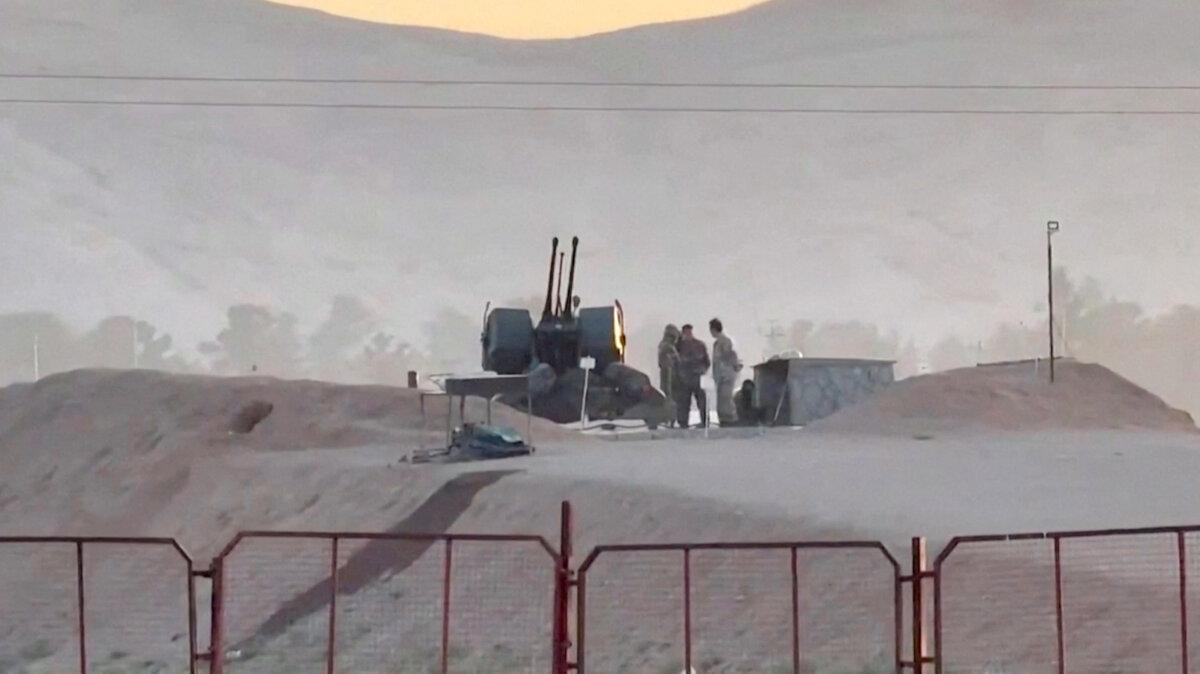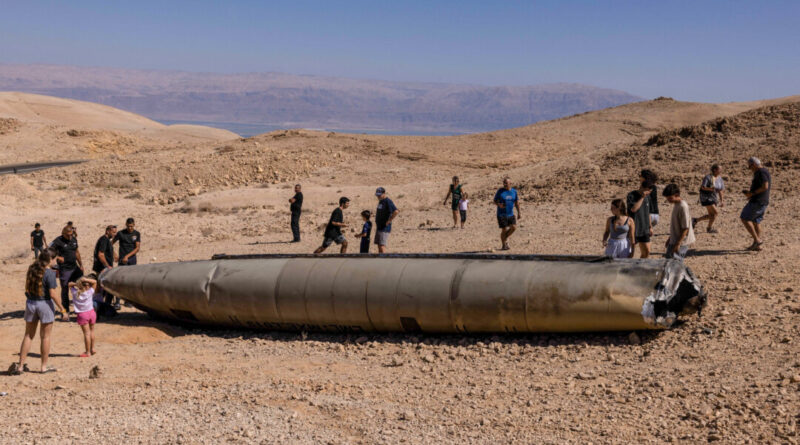What Will Happen Next in the Region After Iranian Missile Attack Leaves on Edge
Israeli Prime Minister Benjamin Netanyahu has promised that Iran ‘will pay’ for its October 1 ballistic missile attack on Israel.
Iran increased tensions in the Middle East on October 1 by launching approximately 180 ballistic missiles at targets in Israel. Military strategists, diplomats, and foreign policy experts are now assessing Israel’s potential response and the likelihood of further escalation from Iran.
Although many of the Iranian missiles were intercepted by Israel with assistance from the United States, the United Kingdom, France, and Jordan, some missiles did hit targets in Israel.
The extent of the damage caused by the Iranian attack is still being verified independently.
Hagari confirmed that Israeli fighter jets were able to continue their operations during and immediately after the Iranian attack.
Iran’s Strategy
The October 1 attack was the second time Iranian forces had targeted Israel with a missile attack in the same year. On April 13, Iran launched a barrage of about 120 ballistic missiles, over 30 slower-moving cruise missiles, and around 170 one-way attack drones at Israel.
Although the number of munitions used in the April 13 attack was higher, the October 1 attack focused more on ballistic missiles.
The missile strike occurred shortly after Israeli ground forces entered southern Lebanon to search for Hezbollah, a Shia Islamist paramilitary group aligned with Iran and designated as a terrorist organization by many countries, including Israel and the United States.
Michael DiMino, a public policy manager at Defense Priorities, suggested that the severity of the April 13 attack on a scale of one to 10 was about a three or four, while the October 1 attack was around a six.
“I don’t think the goal of the [October 1 Iranian] attack was to bombard massively or cause a sea change,” DiMino said during a panel discussion following the attack. “I think they wanted to send a stronger message, but not significantly different.”
The IRGC claimed that the October 1 ballistic missile attack was retaliation for the killing of Ismail Haniyeh—leader of the Palestinian Hamas group who was in Tehran in July—and for an Israeli air strike on September 27 that targeted Hezbollah leader Hassan Nasrallah and IRGC Gen. Abbas Nilforoushan. Israel did not claim responsibility for Haniyeh’s death. Iran and Hamas accused Israel of being behind the explosion.

Israeli air defense system fires to intercept missiles over Hadera, Israel, on Oct. 1, 2024. Ariel Schalit/AP Photo
DiMino suggested that the fact that the IRGC framed the October 1 attack as a response to multiple alleged Israeli attacks indicates that Iranian leadership is cautious about escalating tensions with Israel.
“From their strategic perspective, it seems like they are trying to de-escalate,” DiMino stated.
Kirsten Fontenrose, a nonresident senior fellow at the Atlantic Council’s Scowcroft Middle East Security Initiative, believed that Iran was attempting to retaliate against Israeli operations targeting its regional allies and proxies while trying to minimize the repercussions of its actions.
During a U.N. Security Council meeting on October 2 to discuss escalating tensions in the Middle East, U.N. Secretary-General António Guterres condemned the attack, as he had done following the Iranian attack in April.
Israel’s Potential Reaction

A youth checks the rubble of a destroyed building in Hod HaSharon in the aftermath of an Iranian missile attack on Israel, on Oct. 2, 2024. Jack Guez/AFP via Getty Images
While Biden has discussed potential strikes on Iranian facilities, he has not committed to any specific action.
Conversely, Biden vehemently opposed the idea of Israeli strikes on Iranian nuclear facilities.
“The answer is no,” the president stated.
Thus far, the Biden administration has supported Israel’s right to respond and has called for caution.
The IRGC has threatened further “heavy attacks” if Israel retaliates against the October 1 attack.
As a de-escalation measure, Israel may choose to retaliate against Iran discreetly.
“Israel often opts for intelligence-driven or covert actions to step off the escalation ladder without needing to claim responsibility,” DiMino explained.
“Israel could take a similar approach again, using covert actions as an off-ramp without explicitly claiming responsibility,” DiMino added.

Military personnel stand guard at a nuclear facility in the Zardanjan area of Isfahan, Iran, on April 19, 2024, in this screengrab taken from video. West Asia News Agency via Reuters
Further delay in Israel’s response could prove costly for Iran.
Fontenrose suggested that waiting forces Iran to maintain heightened defenses, diverting resources and manpower from supporting its allies like Hezbollah.
“Iran must now decide whether to passively watch its proxy being dismantled or take further action that could provoke the response some Israeli leaders are eager to deliver,” Fontenrose concluded.





